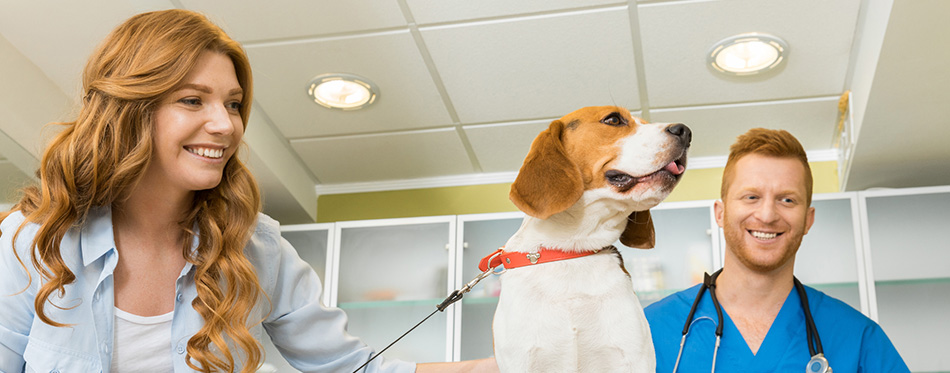As a pet owner, it is undoubtedly a very good idea to have excellent knowledge of the behavior of your pet as well as how it is feeling. While many people don’t seem to spare it much thought, a healthy dose of care and concern for your pet’s health will prolong its life span. Although it can be quite nerve-wracking for first-time adopters and even lifelong pet owners to get their pet over to the vet for a wellness examination, it is still a vital requirement.
Understandably, a teeming and noisy office of a veterinarian can be a stressful experience for a pet and pet parents can be easily distracted by their pet’s antics. Many have attested that they sometimes forget the questions they wanted to ask which they often only recollect once they have left the vet’s office. Hence the importance of showing up well prepared with a list of relevant questions. Having a well-detailed list of questions is nothing to be embarrassed about. Even many vets are pet owners and at one time or the other, they have been faced with the same issues. Ultimately, how successful you will be in delivering optimal care for your pet depends on the knowledge you have acquired. So, start by arming yourself with the following ten questions everyone should ask their vet.
Which Type of Food is Best for My Pet and How Much Does it Need?
Many online stores offer scores of pet food that entice pet owners with great images of nutritious ingredients as well as happy-go-lucky animal pictures. Such food options are branded with marketing buzzwords like ‘grain free’ and ‘handcrafted’ but it is the vet’s responsibility to point out the ideal food for your pet when concerning your pet’s age, size, breed, and level of activity. Recommendations on pet feeding should come from a qualified vet as pet food companies are very good at confusing those who are indecisive on the type of pet food to purchase.
Answering questions on the right quantity of food for your pet can be quite tricky as most pet foods differ from each other. For this reason, you should use your pet’s breed as a guide but at the same time, be aware that the quantity to give depends on your pet’s own metabolism as well as their lifestyle. Even if you have multiple pets that are both very similar healthy, you will still find that the one that is more active will require more food. Generally, pets below four months should be fed three times daily and later reduced to two times a day.
Related Post: Automatic Dog Feeders

What Weight is Healthy for My Pet?
A current survey carried out by the Association for Pet Obesity and Prevention revealed that over half of the population of cats and dogs in the United States of America are overweight. To worsen the situation, most of their adopters refused to believe that their pets have weight problems. Go ahead and ask your vet if your pet’s weight is within the proper range for its breed, stature, and size. If you discover any problems, you will be in a better position to tackle it immediately. This is also applicable to underweight pets.
Related Post: Dog Food for Weight Loss
How do I Know When My Pet is Too Thin or Too Plump?
Determining your pet’s weight is easy, adopters should feel the ribs of their pet as well as the thin fat covering over the ribs and there should be a waist at the back of the ribs. People who feel that their pet is overweight should reduce their food intake by five to ten percent and if this is not effective, make inquiries on low-calories diets from your local vet.
Related Post: Pet Scales
Does My Pet Need Vaccinations?
When your pet is healthy enough, it should commence vaccinations at six weeks old. The shots should continue at a three weeks interval until it gets to four months of age. The DALPP vaccine, which guards against hepatitis and other contagious diseases, is exclusively for puppies while FVRCP is given to kittens for the prevention of contagious as well as deadly illness. Once they get to four months, both your kittens and puppies will need to take rabies vaccine. Additionally, your puppies will still require an additional vaccine to protect them against kennel cough. The answers you are likely to get from inquiring about the exact shot your pet needs will depend on your location, lifestyle and travel plans.
Dental Cleaning: is it Necessary for My Pet?
Dental disease is common with many animals. In fact, an estimation of 70% of cats and 80% of dogs in the United States suffer from one type of periodontal disease which can possibly lead to serious complications if left untreated. It can even affect vital organs like the heart, liver, and kidney. So, instead of sitting and waiting for a problem to surface, inquire from your vet if your pet is due for a dental clean;
Also, it is better to have your pet’s teeth in order and cleaned on a regular basis, especially if it already suffers from a mild case of gingivitis and/or tartar. This helps in disease prevention as well as the maintenance of good health. For more options head over to our guides on the best dog toothbrushes and best dog toothpaste.
How do I Treat Flea, Heartworm, and Tick?
To treat against fleas and ticks, there are many anti-flea products easily available in pet stores or on online stores such as Amazon. However, your vet will also recommend triple protection to guard your pet against ticks, fleas, and heartworms throughout the year. Your pet’s medication plan is greatly dependent on your lifestyle and location. Take a look at our articles on flea treatment for dogs, flea collars for dogs, flea sprays and heartworm medicine for dogs.
What is the Right Age for My Pet to Start Going Outside?
Dealing with a young animal requires a lot of patience and care in the first years of life. Taking them outside is not usually safe especially for people in high-risk environments. You should at least wait until they have exhausted all the necessary vaccinations before allowing it to venture outside. After the first four months, it is usually safe for them to go outside.
Can My Pet Make Me Sick?
Common ailments like a cold are not transmittable from animals to humans but there are a few transmittable conditions like skin diseases, rabies, and intestinal parasites. Usually, your vet or even your GP will be able to supply all the necessary ailments pet owners should make use of.

Is a Second Opinion Necessary or do I Need to See a Specialist
This kind of question is usually an indication of the quality of treatment and care a pet parent requires for his or her pet – these questions usually make it a whole lot easier for the veterinarian to concentrate on the higher quality treatment for clients who might require it. In the same vein with human doctors, vets are known to work to the best of their experience as well as personal knowledge, but then there is the possibility that your pet might be suffering from a condition that might be strange to your vet.
Even though you trust your vet so much, it might just be possible that he or she has never heard of that particular ailment or experienced it before. If you are not happy with the diagnoses of your vet, and you feel that he or she is not sure of what they are saying, don’t hesitate to get a second opinion or better still, visit another specialist in a related medical field.
Do I Need an Explanation for My Bill?
Pet parents place their trust on vets to advise them on what is necessary to keep their pets healthy as well as happy, though the recommendations can sometimes be unaffordable. A report from the American Pet Product Association last year stated that on average, pet owners spend $182 for cats on a routine visit to the vet and $257 for dogs. Many pet owners even end up spending double the amount for any surgical appointment.
It is a good practice for vets to be upfront with the treatment and associated cost when they give their recommendations; besides they should also explain the inherent benefits of the treatment as well as the possible risks. If you don’t happen to agree with the fees, you can go ahead and discuss your budget with your vet. This way, the two of you can come to an agreement on a cost-effective plan on treatment that is not likely to compromise the well-being of your pet.
If you have pet insurance, you can use it as a leverage to offset some of your bills depending on the coverage of your pet insurance scheme. One thing you should know is that you will need to render a detailed receipt to the insurance company so as to get reimbursed. Most likely, there are only a few insurance companies that directly connect with the vet clinic to share both payment and billing details.

